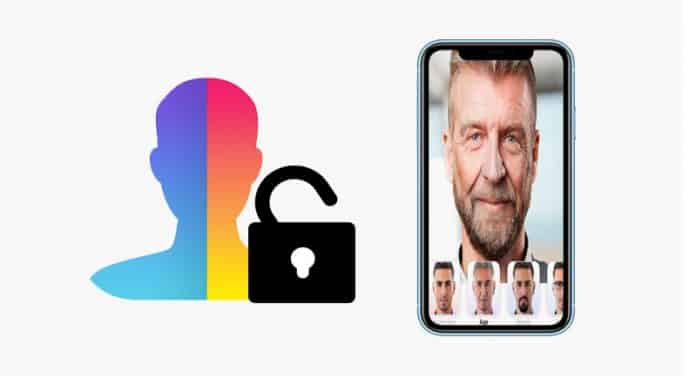FaceApp Old-Age Filter App Returns With Same Privacy Concerns
FaceApp, the Russian photo editing app, is going viral once again over the last several days with celebrities and users posting their old-age pictures on social media platforms like Twitter and Instagram. The ‘old filter’ feature in FaceApp makes people nearly look older or younger than their actual age.
For those unaware, FaceApp, which first went viral in 2017, is a free mobile application that uses advanced software algorithms, which transforms users’ selfies and other pictures using various filters and features.
However, it was later opposed by many as it enabled users to change their ethnicity. As a result, the developers of the app removed the debatable filter that was designed to match a certain ethnicity of the user by changing the skin tone and facial features.
Coming to the app, while it is fun to use, it seems to have its own share of privacy concerns, notes TechCrunch. Apparently, the app is capturing the user’s face and private data.
As spotted by Twitter user Elizabeth Potts Weinstein, the license terms of the app state that the old-age filter app use grants its developers the right to use your selfies, name, likeness for any purpose, voice, or persona for commercial purposes.
If you use #FaceApp you are giving them a license to use your photos, your name, your username, and your likeness for any purpose including commercial purposes (like on a billboard or internet ad) — see their Terms: https://t.co/e0sTgzowoN pic.twitter.com/XzYxRdXZ9q
— Elizabeth Potts Weinstein (@ElizabethPW) July 17, 2019
The privacy page of the app does admit that they “may share User Content and your information with businesses that are legally part of the same group of companies that FaceApp is.”
“We also may share your information as well as information from tools like cookies, log files, and device identifiers and location data, with third-party organizations that help us provide the Service to you,” the privacy policy continues.
The report on TechCrunch also pointed out how for iOS users, the app was able to access the photo library even when the user had set the settings to ‘Never’. However, in the case of iOS, the app is able to access only one picture and not the entire photo gallery. This is because of Apple’s API introduced with iOS 11 that allows an app to access the photo only when a user taps on it.
In other words, FaceApp is able to access the photos on iOS despite the default privacy setting restriction is because the user wants it to.
Further, FaceApp does not notify the user that their photo has been uploaded to the cloud, nor does it mention in its policies whether the company would keep the user’s original photo or what the company is allowed to do with it.
Also, the company’s extremely broad terms of service give FaceApp permission to use the images the way it wants to.
“You grant FaceApp a perpetual, irrevocable, nonexclusive, royalty-free, worldwide, fully-paid, transferable sub-licensable license to use, reproduce, modify, adapt, publish, translate, create derivative works from, distribute, publicly perform, and display your User Content and any name, username or likeness provided in connection with your User Content in all media formats and channels now known or later developed, without compensation to you,” one of the terms reads.
“When you post or otherwise share User Content on or through our Services, you understand that your User Content and any associated information (such as your [username], location or profile photo) will be visible to the public.”
While there is no proof that FaceApp is misusing your personal data, but if you are not comfortable with the app’s terms and privacy policy, then it is advisable not to download the app.

